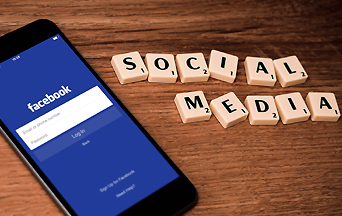
The Russian collusion case has been dominating the headlines for some time. Recent indictments seem to prove that 13 Russian individuals and 3 companies operated thousands of Facebook, Twitter and Instagram accounts aimed at influencing the American elections and destabilizing the country. Investigators have sounded the alarm saying tens of millions may have been exposed to the false postings.
However, such destabilizing assertions are hard to prove. The vast majority of Americans never saw one of these threatening Russian posts, much less “liked” them. In addition, destabilizing a country is difficult. America’s traditional enemies know this well since they have been involved in such operations for decades. Foreign disruption is old news.
Social Media’s Limitations
It is unlikely that Russia’s Facebook offensive had a major impact on the elections for three reasons.
The first reason involves the scope of the operation. In this particular case, even thousands of social media accounts are a tiny drop in a vast cyber-ocean of hundreds of millions of accounts. It is unreasonable to think that this drop might have had any significant or quantifiable effect upon the elections.
 Learn All About the Prophecies of Our Lady of Good Success About Our Times
Learn All About the Prophecies of Our Lady of Good Success About Our Times
Secondly, claims of destabilization seem to insinuate that social media posts are the elections. Exposure to posts does not mean actually reading them. Social media is merely a small part of any election campaign. Such posts do not determine the results. Moreover, anything the Russians may have employed during the elections is dwarfed in comparison to the social media assets brought to the table by both the Democratic and Republican Party establishments. The Russian effort is a non-issue.
Finally, the claims assign an almost fatalistic quality to Russian posts. Some people seem to believe that a carefully crafted post can change the convictions and beliefs of a person in an instant especially in a highly polarized election. It attributes an almost zombie-like lack of personality to voters, as if incapable of resisting the message posted by Russian agents.
The Hysteria More Dangerous than the Russian Posts Themselves
Everyone knows that posts have short shelf-lives. Their impact is very limited since most are not even read. Posts are hardly game changers.
It should be so easy to conclude these Russian posts did not destabilize the nation.
However, the hysteria over the Russian posts is destabilizing the nation. This uproar is far more dangerous than the accounts that were recently discovered.
The danger comes from the nature of social media that makes this destabilizing hysteria possible. The swirling information networks help create a mania for all that is superficial, sensational and shallow.
Thriving on the Sensational
This mania works against the best interest of the nation. Issues need to be considered profoundly. There should be time to ponder the meaning of things and appreciate their nuances.
10 Razones Por las Cuales el “Matrimonio” Homosexual es Dañino y tiene que Ser Desaprobado
The worst aspect of the Russian case is not the content of the posts that supposedly subverted the nation. It is rather the confusing fog that descends upon the screens of countless Americans. It is the never-ending stream of headlines that speak about emails, Russians, secret accounts and indictments. There is no room for penetrating analysis that can get to the bottom of the matter nor does there seem to be any desire to do so.
The Real Destabilizers
Thus, there are times when Facebook posts can help destabilize the nation. This happens when posts and tweets become the major source of news for people who do not want to look at things more profoundly. They destabilize when social media accounts become the vehicle on which “fake news” travels since no one wants to go through the trouble of verifying sources. When people feed only on the short and sensational, it creates the conditions for the most absurd things to be accepted.
The problem is complicated further when politicians respond in kind to the posts. Social media then become the circuit through which political and cultural figures communicate with the public. This explains the new trend of governing by tweets and Facebook posts. There is no occasion too solemn that cannot be interpreted by a tweet. There is no political debate so brutal as that of social media postings and counter-postings that ignore protocol and civility.
Of course, social media are not the only cultural forces at work to subvert the culture. So many other fields of human activity—education, literature, technology and the liberal arts—have been emptied of meaning and purpose. Social relationships have likewise been destroyed by the breakdown of morals, the family and the community. A secular society has dethroned God and set people up on thrones, thus depriving them of a final end.
All these factors unite to form a shallow society of Facebook Friends, twitter quarrels and Instagram experiences, into which are inserted the Russian posts that supposedly are destabilizing the nation.
